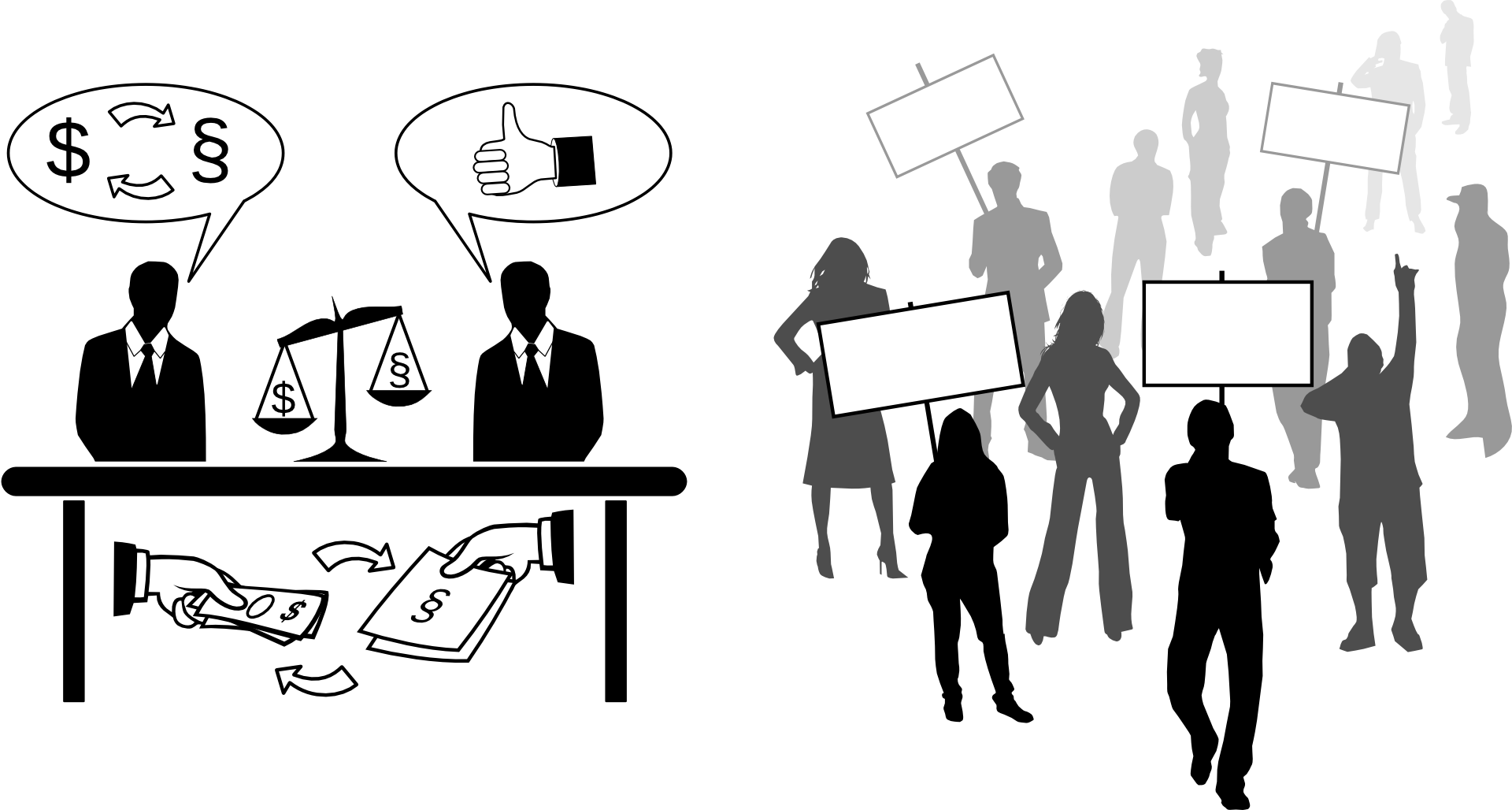To some, it’s a natural consequence of free speech. To others, it’s the devil incarnate.
Lobbying goes all the way back to the early 1800s and is a regular source of controversy. Many worry that the lobbying process has too much sway on government access. Others say it can influence decisions for the good of all.
But what is lobbying, really? It’s more than a buzzword that some blame their problems on. Believe it or not, it’s a common feature of the democratic process in the United States.
If you’re not sure what lobbying is, you’ve come to the right place. Keep reading as we give you the 101.
What Is Lobbying?
Lobbying is when private interest groups try to influence the decisions of lawmakers. These are skilled individuals who sit in the “lobby” to persuade legislative action. The person who does this work is called a lobbyist.
A lobbyist works on behalf of a wealthy individual or organization. In most cases, this is a representative of a corporation or business. They can also serve on the behalf of non-profit organizations.
This is a contracted profession, so a company will seek out a qualified lobbyist. Click to find out more about how to hire a lobbyist.
A lobbyist may try to influence decisions at every step of the legislative process. They may propose a bill, support one already in the queue, or strike down existing laws. Being a lobbyist means going a step beyond contacting a representative such as by email.
This is often a long-term process that involves meeting with lawmakers in person. A lobbyist often maintains strong professional–and occasionally personal–relationships. This may include emails/letters, calls, meetings, lunches, or attending social events.
Private interest groups need a way to make sure politicians keep their interests in mind. Voting is not enough for them. The lobbying process is all about spurring direct government action.
What Makes a Good Lobbyist?
A lobbyist is someone who is charismatic, persuasive, and social adept. They are someone who knows how to work with people and get things done.
Lobbyists are often experts in legislation and policy. They may have served in politics previously. Otherwise, they are well familiar with the government’s inner workings.
For the greatest success, a lobbyist must have strong connections. They know people who know people. Their networking skills mean they always have someone to call upon when needed.
Lobbyists make use of good data and information. They present this information to convince legislators to make the right decision. This gives lawmakers additional insight they might not have had.
Finally, a lobbyist is a go-getter. They find intuitive ways to meet face-to-face with congressmen. They make it worth a politician’s time to discuss relevant matters.
Types of Lobbying
Lobbying comes in two forms: direct lobbying and grassroots lobbying.
As the name implies, direct lobbying means going straight to the source. This is the sort of lobbying mentioned above. It involves close contact with a legislator in whatever form is prudent.
Grassroots lobbying is a technique often used by non-profits and charities. This is a means of lobbying where lobbyists galvanize the people to a cause. They rally support and convince the people themselves to contact politicians.
A common way to do this is to help citizens contact their legislators directly. This might be an email form, a directory, or a list of phone numbers.
They help citizens to understand the issues first. Then they urge them to contact their representatives and make it easy to do so.
What Are the Limitations of Lobbying?
While a lobbyist can do a lot to influence decisions, they do not have carte blanche.
For starters, a lobbyist cannot give money to politicians. This is illegal, and there are severe penalties for doing so.
Further, a lobbyist cannot give gifts either. This would call into question their ethics, and represents a terrible breach of our free democratic society. That means a lobbyist’s job is to convince a politician with information and logic.
Non-profit organizations have limits on how much they can lobby. Lobby too much, and they risk their tax-exemption status. Other activities that do not count as lobbying are acceptable.
Lobbying isn’t just for private interest groups like corporations. Public offices can use them to sway decisions at the federal level. However, there are limitations on using public funds or which person they can send.
Criticisms of Lobbying
Lobbying is a great way for private interest groups to make their voice heard. However, lobbying does incur a lot of criticism.
Lobbyists have a moral duty to the public. What benefits a large corporation may not serve the interest of the public at large. As such, many deem it immoral when lobbyists influence changes at the expense of everyday people.
In most cases, companies can spend a lot of money to hire a lobbyist. The average citizen cannot do this, putting them at a huge disadvantage. Grassroots lobbying is often not as impactful as direct lobbying.
Lobbyists can also make donations to campaigns and political parties. This can give them undue influence. A lobbyist can help to reelect a politician, and in return that politician votes for specific legislation.
However, lobbying is a fundamental part of the United States’ political process. Many have suggested removing it from our political process, but no significant effort has been made. Lobbying is the key way that private interest groups pursue solutions. Click to know more about tranny tubes.
Lobbying Is Here to Stay
What is lobbying? It’s the process by which private interest groups like corporations and non-profits can influence decisions made by lawmakers. Lobbying has a long history in the US and helps big organizations to incite change.
Follow our blog for a wide variety of topics that might interest you.
Read more articles at Peoples Magazine

